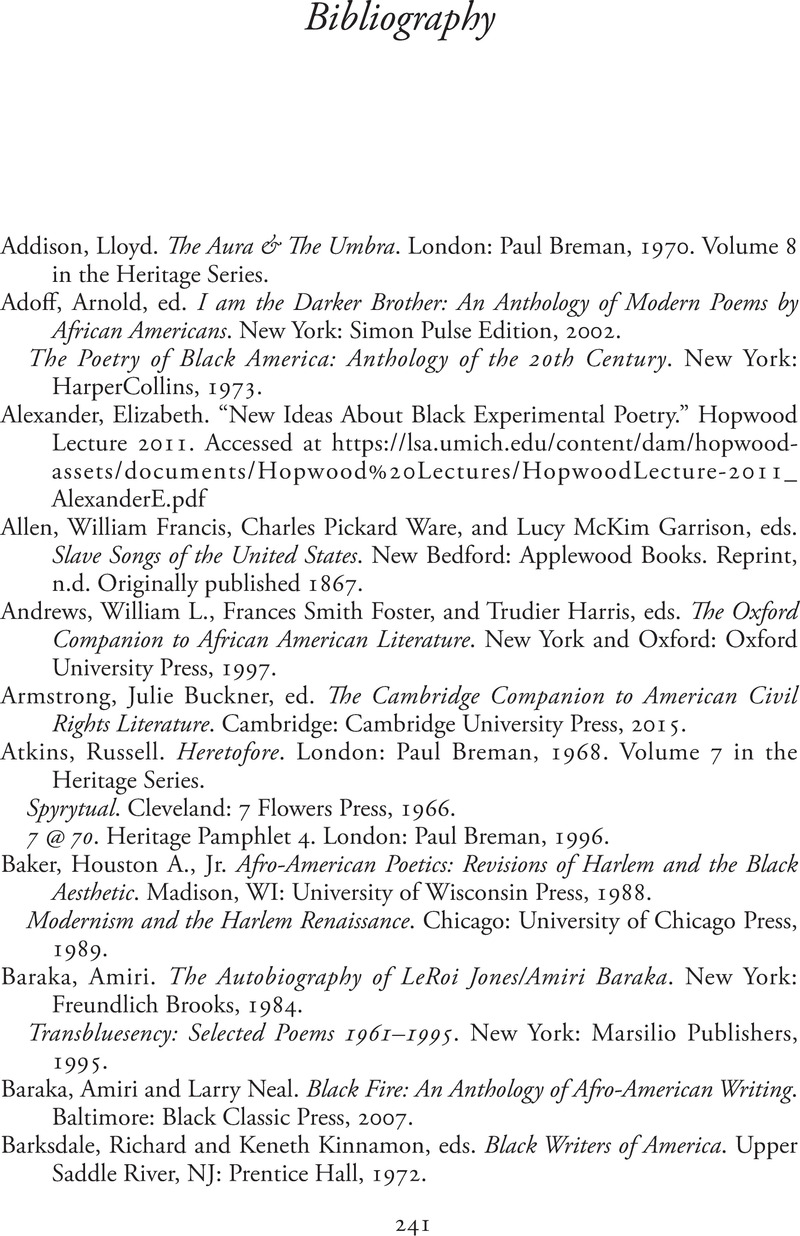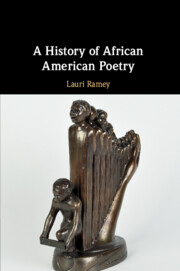Book contents
- A History of African American Poetry
- A History of African American Poetry
- Copyright page
- Contents
- Illustrations
- Acknowledgments
- Chapter 1 Introduction to a Genre
- Chapter 2 The Origins of African American Poetry
- Chapter 3 Emancipation to African American Modernism
- Chapter 4 The Twentieth Century Renaissances
- Chapter 5 Contemporary African American Poetry
- Appendix: Interview with Paul Breman
- Bibliography
- Index
- References
Bibliography
Published online by Cambridge University Press: 01 March 2019
- A History of African American Poetry
- A History of African American Poetry
- Copyright page
- Contents
- Illustrations
- Acknowledgments
- Chapter 1 Introduction to a Genre
- Chapter 2 The Origins of African American Poetry
- Chapter 3 Emancipation to African American Modernism
- Chapter 4 The Twentieth Century Renaissances
- Chapter 5 Contemporary African American Poetry
- Appendix: Interview with Paul Breman
- Bibliography
- Index
- References
Summary

- Type
- Chapter
- Information
- A History of African American Poetry , pp. 241 - 254Publisher: Cambridge University PressPrint publication year: 2019



